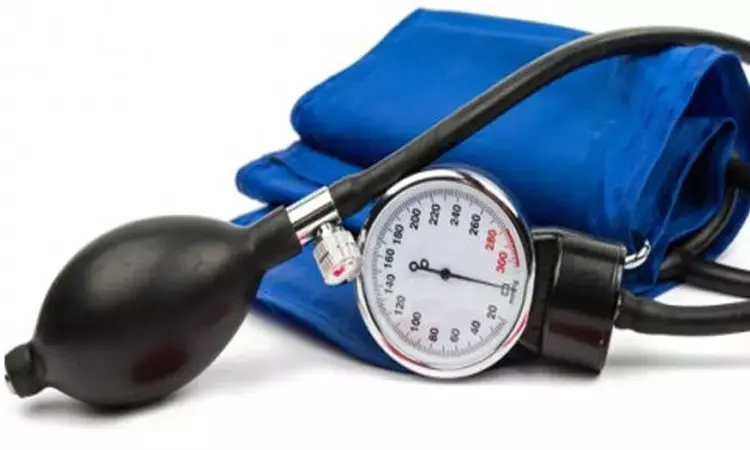- Home
- Medical news & Guidelines
- Anesthesiology
- Cardiology and CTVS
- Critical Care
- Dentistry
- Dermatology
- Diabetes and Endocrinology
- ENT
- Gastroenterology
- Medicine
- Nephrology
- Neurology
- Obstretics-Gynaecology
- Oncology
- Ophthalmology
- Orthopaedics
- Pediatrics-Neonatology
- Psychiatry
- Pulmonology
- Radiology
- Surgery
- Urology
- Laboratory Medicine
- Diet
- Nursing
- Paramedical
- Physiotherapy
- Health news
- Fact Check
- Bone Health Fact Check
- Brain Health Fact Check
- Cancer Related Fact Check
- Child Care Fact Check
- Dental and oral health fact check
- Diabetes and metabolic health fact check
- Diet and Nutrition Fact Check
- Eye and ENT Care Fact Check
- Fitness fact check
- Gut health fact check
- Heart health fact check
- Kidney health fact check
- Medical education fact check
- Men's health fact check
- Respiratory fact check
- Skin and hair care fact check
- Vaccine and Immunization fact check
- Women's health fact check
- AYUSH
- State News
- Andaman and Nicobar Islands
- Andhra Pradesh
- Arunachal Pradesh
- Assam
- Bihar
- Chandigarh
- Chattisgarh
- Dadra and Nagar Haveli
- Daman and Diu
- Delhi
- Goa
- Gujarat
- Haryana
- Himachal Pradesh
- Jammu & Kashmir
- Jharkhand
- Karnataka
- Kerala
- Ladakh
- Lakshadweep
- Madhya Pradesh
- Maharashtra
- Manipur
- Meghalaya
- Mizoram
- Nagaland
- Odisha
- Puducherry
- Punjab
- Rajasthan
- Sikkim
- Tamil Nadu
- Telangana
- Tripura
- Uttar Pradesh
- Uttrakhand
- West Bengal
- Medical Education
- Industry
High BP during and after exercise linked to CVD and death risk

Blood pressure responses to exercise is a significant marker of CVD and mortality risk in young to middle-aged adults.
Boston)--Exercise can increase blood pressure, but the effects are typically temporary.
Researchers from Boston University School of Medicine (BUSM) have found that higher blood pressure during exercise and delayed blood pressure recovery after exercise are associated with a higher risk of hypertension, preclinical and clinical cardiovascular disease and death among middle-aged to older adults.
These findings appear online in the Journal of the American Heart Association.
Blood pressure responses to exercise are significant markers of cardiovascular disease and mortality risk in young to middle-aged adults. However, few studies have examined the associations of midlife blood pressure responses to submaximal (less than the maximum of which an individual is capable) exercise with the risk of cardiovascular outcomes and mortality in later life.
Researchers evaluated the association of blood pressure changes and recovery with indicators of preclinical disease among participants from the Framingham Heart Study (average age 58 years, 53 percent women). They then followed these participants to assess whether these blood pressure changes were associated with the risk of developing hypertension, cardiovascular disease or dying.
They observed that both higher exercise systolic blood pressure (SBP) and exercise diastolic blood pressure (DBP) were associated with a greater risk of developing hypertension. Additionally, both delayed SBP and DBP recovery after exercise were associated with higher risk of cardiovascular disease and death.
"The way our blood pressure changes during and after exercise provides important information on whether we will develop disease in the future; this may help investigators evaluate whether this information can be used to better identify people who are at higher risk of developing hypertension and CVD, or dying later in life," explained corresponding author Vanessa Xanthakis, PhD, assistant professor of medicine and biostatistics at BUSM and an Investigator for the Framingham Heart Study.
Xanthakis recommends that people know their blood pressure numbers, speak to their physician regarding changes during and after exercise and follow a healthy lifestyle (including a regular physical activity schedule) to help lower risk of disease later in life.
Hina Zahid Joined Medical Dialogue in 2017 with a passion to work as a Reporter. She coordinates with various national and international journals and association and covers all the stories related to Medical guidelines, Medical Journals, rare medical surgeries as well as all the updates in the medical field. Email: editorial@medicaldialogues.in. Contact no. 011-43720751
Dr Kamal Kant Kohli-MBBS, DTCD- a chest specialist with more than 30 years of practice and a flair for writing clinical articles, Dr Kamal Kant Kohli joined Medical Dialogues as a Chief Editor of Medical News. Besides writing articles, as an editor, he proofreads and verifies all the medical content published on Medical Dialogues including those coming from journals, studies,medical conferences,guidelines etc. Email: drkohli@medicaldialogues.in. Contact no. 011-43720751


